Dog training is a vastly important part of dog ownership. Although sometimes it might feel unnatural to make a dog behave the way that you want, if you are to have a harmonious family relationship, then you must ensure that your pet is properly socialised. Rather than thinking about it as radically modifying their behaviour, think of it instead as teaching them the manners they need in order to get through day to day life.

Dog School - Dog Training
by laura_quest
Dog training is an essential part of pet ownership. Here is a quick guide of things to consider when training a dog.
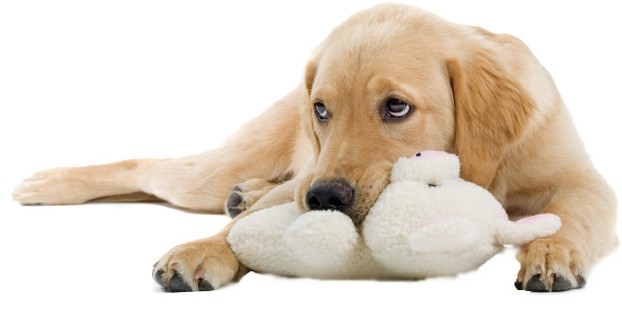 Dog School - Dog Training |
Essential Tips
When you first get your puppy, it can be easy to get caught up in the joy of having them around and at first you may be willing to overlook the puddles on the carpet or chewed shoes. But this is a mistake. From the beginning you need to ensure that you properly establish the fact that you are boss, and that puppy has to pay attention to what you tell them.
To do this, there are 3 simple things that you should remember:
- Make sure that they are paying attention to you
A puppy will never learn to listen to your commands if he isn't giving you his full attention. The most effective way to do this is to ensure that he knows his name and to respond to it. Reinforce this several times a day by calling him whilst holding a treat for him. This will encourage him to look at you when you call.
- Getting them to sit
This is one of the first things that you will want to get your dog to do, and this simple act can act as the foundation for all other training. A puppy that sits down whilst you are trying to teach him is far more relaxed and attentive meaning that the learning process should be quicker. To train him to sit, shout the command and when he assumes the position, give him a treat straight away so that he knows that this is what you want from him.
- Coming when he's called
Obviously, this is vital if you are going to be able to take your puppy out of the house, and later, let him off his lead. Young puppies are often fairly anxious when leaving the house for the first time, and will come back to you for assurances of safety, but when he does begin to stray simply shout his name or "come". When he returns, make sure that you reward him for his good behaviour.
House Training
House training can often be a frustrating process for pet owners, and all dogs will take different amounts of time to learn. When training, try not to become too frustrated and NEVER take out the frustration on your dog. Not only could this be deemed cruel, but it can also be extremely counter-productive, causing anxiety which can lead to extensive behavioural problems later on in life.
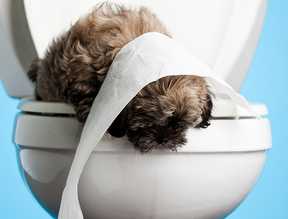
Instead, make sure that you keep an eye on your puppy and establish a routine. Some puppies are more likely to need to go to the toilet at specific times, for example, upon waking or when they are particularly excited. Let your dog out periodically throughout the day, and especially upon waking, after eating and any other time you have noticed. When your dog goes in the place you want him to, reward him with a treat and show him how much you appreciate it.
If accidents do (and they probably will!) happen, be careful not to clean up with products containing amonia as there are certain properties that will actually encourage rather than deter the dog to do his business there.
Patience is massively important during this time, but if you keep up the routine, then you should have a house-trained dog in no time!
Biting and Chewing
Biting and chewing can be problematic for puppy owners, and if you don't get control of the situation while the puppy is still young, then it can continue right through the dog's life. Puppies will bite. It's in their nature, but there are things that you can do to stop them, saving your hands, feet and furniture!

The first, and most crucial thing that you need to do is to ensure that you don't take the puppy from its mother too soon. Frequent biting can be symptomatic of the puppy not receiving adequate training from the mum, who will curb the puppy's biting as he plays with his brothers and sisters. If your puppy bites, replicate what its mother would do - let out a loud yelp and leave it alone for a period of time to send out the signal that its behaviour isn't acceptable. He will soon learn what he has done wrong and begin to change.
Chewing is also a major issue. No matter what you leave lying around, the puppy tends to think its a tasty treat especially for him. You can help to stop him chewing your possessions by buying him toys specifically for that purpose and encouraging him to chew them instead. If he chews something he's not supposed to, remove it from him and replace it with the toy - he'll soon get the message.
In older dogs, chewing can be indicative of a wider behavioural problem. If it persists, make sure that you give him plenty of positive attention and seek the advice of a professional dog trainer.
Barking
A dog that won't stop barking can not only be extremely annoying, it can also be destructive, particularly if it happens a lot at night, destroying sleep and straining your relationships. Although it's totally natural for dogs to bark, it can reach a point where it becomes more than just a nuisance, it can also get you into trouble with the neighbours and result in noise complaints.
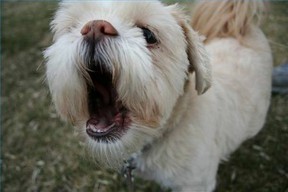
The most effective thing that you can do to prevent your dog from barking is to ignore him. Easier said than done, your dog barks to receive attention and responding to his barks - even if you do it angrily - is rewarding him. Instead of shouting, simply walk away, rewarding him and lavishing him with attention once he has quietened down. This will help him to understand how to act appropriately.
You should also take note of when your dog is more likely to bark and try to remove stimulus from him which could cause him to act up. You can also teach him to "bark" at appropriate times, this training process sounds ridiculous but it has been shown to be remarkably effective. Again, for more help with this, contact your local dog trainer.
Moving On...
 Even when your puppy is fully grown, it's important that you keep reinforcing discipline and ensuring that they are kept active and happy. Some dogs will need more exercise than others, and the type of activities they will want to do largely depend on the breed. Taking up agility training is a great way to keep your dog in shape, enhance their flexibility and discipline as well as giving you the opportunity to spend some time together in a constructive environment.
Even when your puppy is fully grown, it's important that you keep reinforcing discipline and ensuring that they are kept active and happy. Some dogs will need more exercise than others, and the type of activities they will want to do largely depend on the breed. Taking up agility training is a great way to keep your dog in shape, enhance their flexibility and discipline as well as giving you the opportunity to spend some time together in a constructive environment.
If agility training doesn't sound like your cup of tea, the American sport Flyball is seeing a rise in popularity across the UK at the moment and there are tonnes of clubs and competitions you can get involved in!
http://www.dogschoolltd.co.uk/
You might also like
Training Your Dog with DistractionsHow to get your dog to listen to you when there are more interesting things t...
German Dog CommandsA list of the most common German dog commands, with pronunciations and examples.
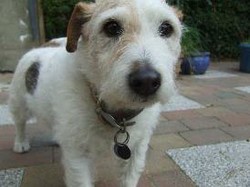


 Winter Skin Careon 10/18/2012
Winter Skin Careon 10/18/2012
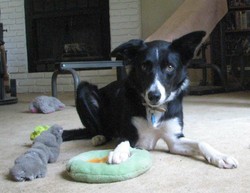
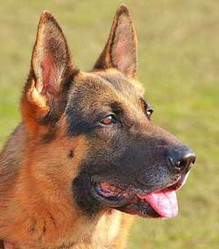
Comments
I have a Jack Russell and golden retriever just like your first two dogs. The golden is by far the most stubborn dog I've ever had. It took four years to get her to stop jumping on people. She's seven years old now and well behaved. The JR still won't come when called, or at least not if he doesn't feel like it. Good article.
My daughter is looking to get a new dog, it will be her first. She wants to get a rescue prison dog. We are still researching all the many options. She wants a dog that will run with her. We def will need these training tips. Thanks :)K